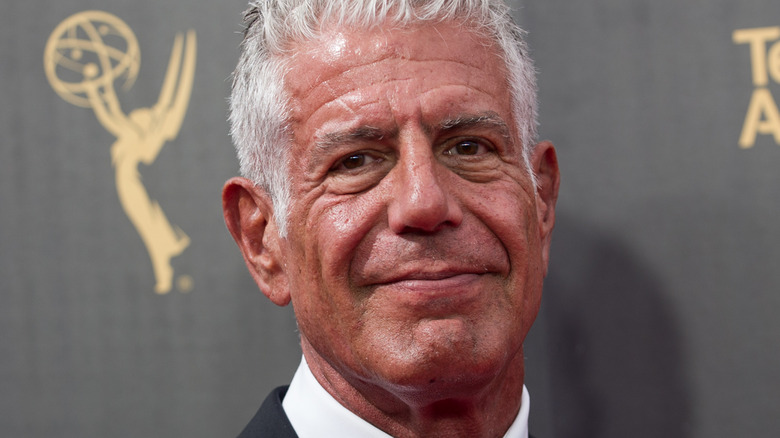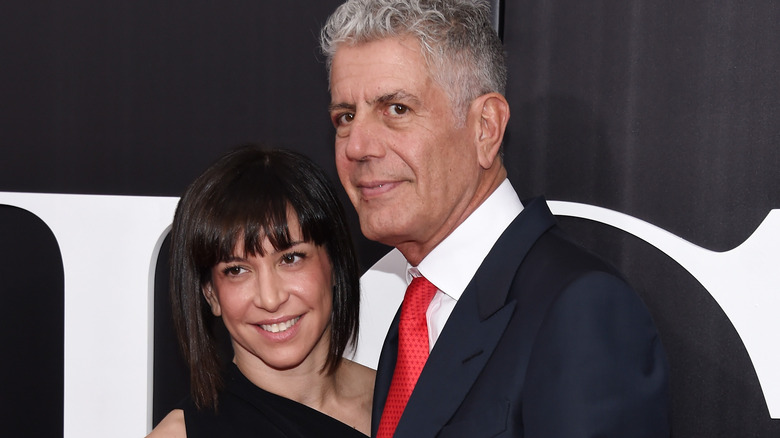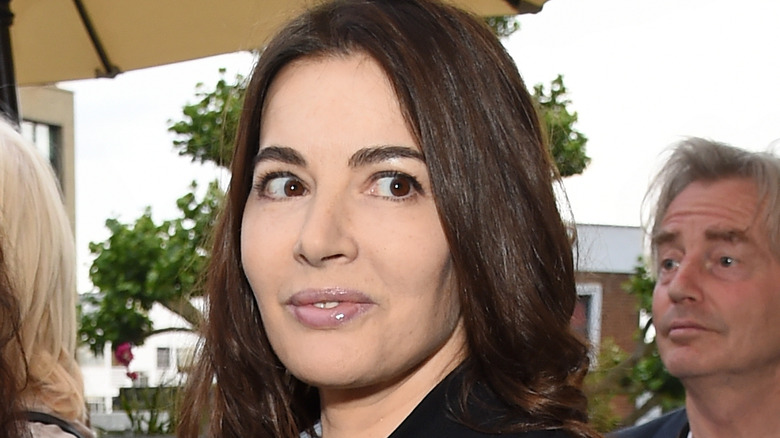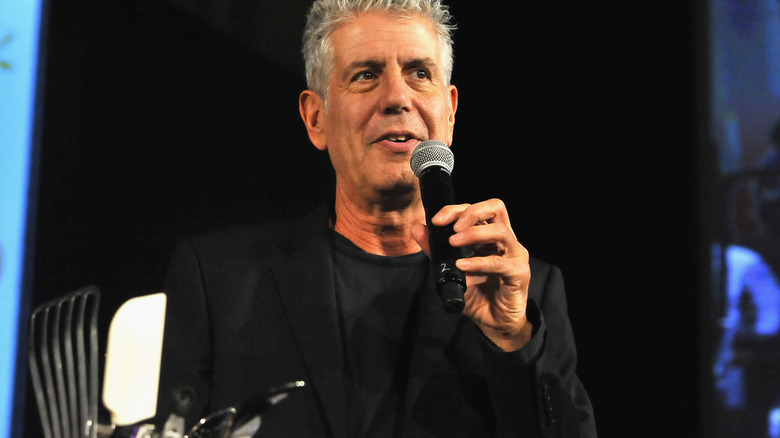Ottavia Bourdain Has A Harsh Response To The Roadrunner Director's Claim
Fans celebrated when it was announced that a new documentary about legendary chef Anthony Bourdain was in the works. And for the most part, "Roadrunner: A Film About Anthony Bourdain" has been well received since its release, receiving 96% on Rotten Tomatoes' Tomatometer. The Wall Street Journal called the film "a stirring account of an astonishing life." Some critics might demand an opportunity to rewrite their reviews after learning that in some cases, when they were hearing Bourdain speaking in voiceover, they weren't really hearing Bourdain's voice.
When a writer for The New Yorker wondered how director Morgan Neville could have found audio of Bourdain reading his own email during a certain scene in "Roadrunner," Neville admitted that he hadn't. "There were three quotes there I wanted his voice for that there were no recordings of," Neville told The New Yorker, including a highly personal email Bourdain had sent to his friend Dave Choe. Choe begins to read the email in the documentary, and the voice transitions to Bourdain's — or, to be honest, a computer-generated likeness of Bourdain's voice.
"I created an AI model of his voice," Neville said. He told GQ that Bourdain's widow was okay with that. But his second wife, Ottavia Busia-Bourdain, took to Twitter to say she most definitely wasn't okay with it.
Ottavia Busia-Bourdain suggested she wasn't okay with the AI Anthony Bourdain voice
In interviews about his documentary "Roadrunner," Morgan Neville made it clear he wasn't using artificial intelligence to make Anthony Bourdain say things he had never thought. The three moments were an AI version of Bourdain's voice is used to narrate the film all came from something Bourdain had written, Neville told GQ. "I checked, you know, with his [Bourdain's] widow and his literary executor, just to make sure people were cool with that," he said. "They were like, Tony would have been cool with that. I wasn't putting words into his mouth. I was just trying to make them come alive."
Responding to the director's quote on Twitter, Ottavia Busia-Bourdain didn't say Neville never consulted her about the use of AI, but she questioned how he described her feelings about it. "I certainly was NOT the one who said Tony would have been cool with that," Busia-Bourdain tweeted.
Movie critic Sean Burns wasn't cool with it either. He didn't love the movie to begin with, calling it "icky and exploitative" in his review for WBUR. On Twitter, Burns suggested that the AI simulations of Bourdain's voice only increased the ick factor for him. "When I wrote my review I was not aware that the filmmakers had used an AI to deepfake Bourdain's voice for portions of the narration," he tweeted. "I feel like this tells you all you need to know about the ethics of the people behind this project."
Nigella Lawson called the Anthony Bourdain voice AI 'despicable'
For his part, director Morgan Neville didn't appear too troubled over the AI in his documentary "Roadrunner." After confessing to The New Yorker that the narrated Anthony Bourdain email was in fact a computer simulation of his voice, he said, "you probably don't know what the other lines are that were spoken by the AI, and you're not going to know." He added, "We can have a documentary-ethics panel about it later." Given the responses by prominent people in media and the food industry, someone might convene that ethics panel fairly soon.
British TV cook Nigella Lawson replied to Ottavia Busia-Bourdain's tweet, saying, ""This is despicable. I'm so sorry you and A have this to deal with on top of everything else." ("A" is an apparent reference to Tony and Ottavia's daughter Ariane.)
Another documentary filmmaker, Lindsay Beyerstein, suggested on Twitter that the makers of "Roadrunner" might have done better if they had disclosed in the film that Bourdain's voice was simulated in some cases (via Variety). A Bourdain fan, responding to Beyerstein, thought that sort of disclosure would not have appeased the famous cook who was known for stripping as much artifice as possible from his own TV productions. "Regardless," the response said, "I'm pretty sure that would make Anthony Bourdain puke."
The makers of 'Roadrunner' took advantage of the best deepfake voice technology
You might wonder how the makers of "Roadrunner" were able to make a computer sound like Anthony Bourdain. Many of us are already familiar with a tiny piece of this technology. The iPhone's voice-activated assistant is programmed to recognize that it's you whenever you say, "Hey, Siri" (via iClarified). Forbes recently told the story of cybercriminals who figured out how to get a computer to mimic the voice of someone's boss and convince them to wire a large sum of money. The quality of deepfake voices is improving daily, Forbes said.
The producers of the new Anthony Bourdain documentary had a big advantage trying to develop a fake version of their subject's voice: hours and hours of recordings of Bourdain speaking. "We fed more than 10 hours of Tony's voice into an AI model," director Morgan Neville told GQ. "The bigger the quantity, the better the result. We worked with four companies before settling on the best."
This doesn't rise to the level of crime that Forbes described, but some social media users thought maybe the move was a crime against art, or against Bourdain's memory. As Twitter user @MichaelChu7 put it, "I feel like using AI to make Anthony Bourdain's voice appear to say something that he never actually said is not ONLY wildly unethical but also something that Anthony Bourdain would absof******lutely hate on account of it being ghoulish and awful."



